|
Books Should Be Free Loyal Books Free Public Domain Audiobooks & eBook Downloads |
|
|
Books Should Be Free Loyal Books Free Public Domain Audiobooks & eBook Downloads |
|
Historical Fiction |
|---|
|
Book type:
Sort by:
View by:
|
By: Richard D. Blackmore (1825-1900) | |
|---|---|
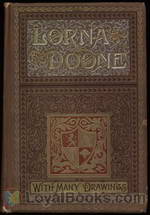 Lorna Doone A Romance of Exmoor
Lorna Doone A Romance of Exmoor
| |
By: Ring Lardner (1885-1933) | |
|---|---|
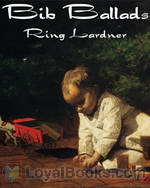 Bib Ballads
Bib Ballads
Ring Lardner is a typical parent when his first child is born, full of wonder and the rest of the usual emotions as he watches his little son grow. He wrote a series of 29 short poems on various facets of parenthood. | |
By: Robert Barr (1849-1912) | |
|---|---|
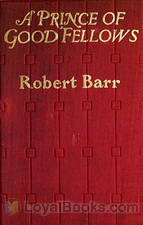 A Prince of Good Fellows
A Prince of Good Fellows
Robert Barr (1849 - 1912) was a Scottish Journalist, editor, humorist and author. A Prince of Good Fellows was published in 1902, and is a series of Historical Fiction stories about the young James V, King of Scots (1512 – 1542). The chapters are full of humor and adventure and portrays a young King who is both wise and adventurous. | |
By: Robert Hugh Benson (1871-1914) | |
|---|---|
 Come Rack! Come Rope!
Come Rack! Come Rope!
Come Rack! Come Rope! is a historical novel by the English priest and writer Robert Hugh Benson, a convert to Catholicism from Anglicanism. Set in Derbyshire at the time of the Elizabethan persecution of Catholics, when being or harboring a priest was considered treason and was punishable with death, it tells the story of two young lovers who give up their chance of happiness together, choosing instead to face imprisonment and martyrdom, so that "God's will" may be done.The book was written nearly nine years after Benson's reception into the Catholic Church... | |
By: Robert Louis Stevenson (1850-1894) | |
|---|---|
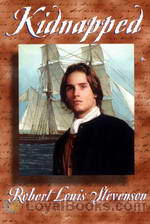 Kidnapped
Kidnapped
Kidnapped is the story of a 16-year old young man who is searching for his true birthright and is determined to make a fortune after the death of his parents. This timeless tale by Robert Louis Stevenson follows the life of David Balfour who leaves his home in Scotland after the death of his parents. First he meets his uncle for the first time in his life. His uncle is a very mean person who, at first, tried to kill David by devious means but then got him kidnapped onto a slave ship. In the ship, David makes friends with a Scottish rebel and together they successfully defeat the ship’s crew... | |
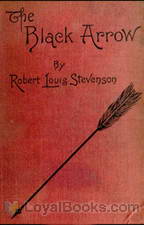 The Black Arrow; a Tale of Two Roses
The Black Arrow; a Tale of Two Roses
The Black Arrow tells the story of Richard (Dick) Shelton during the Wars of the Roses: how he becomes a knight, rescues his lady Joanna Sedley, and obtains justice for the murder of his father, Sir Harry Shelton. Outlaws in Tunstall Forest organized by Ellis Duckworth, whose weapon and calling card is a black arrow, cause Dick to suspect that his guardian Sir Daniel Brackley and his retainers are responsible for his father’s murder. Dick’s suspicions are enough to turn Sir Daniel against him, so he has no recourse but to escape from Sir Daniel and join the outlaws of the Black Arrow against him... | |
By: Robert Michael Ballantyne (1825-1894) | |
|---|---|
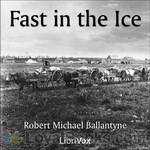 Fast in the Ice
Fast in the Ice
At the age of 16 Ballantyne went to Canada and was six years in the service of the Hudson’s Bay Company. His rule in writing, being in every case, was to write as far as possible from personal knowledge of the scenes he described. In this book he details the lives of the crew as they must overwinter in the frozen north including their meetings with Eskimos and bears and their struggles with disease. This is a realistic account of what life was like for the explorers of the Arctic. | |
 Post Haste
Post Haste
In this book, Ballantyne weaves the story of Phillip Mayland and his friend, George Aspel with an interesting portrayal of the British Post Office as it existed in the 19th century. In the words of R. M. Ballantyne himself: "This tale is founded chiefly on facts furnished by the Postmaster-General’s Annual Reports, and gathered, during personal intercourse and investigation, at the General Post-Office of London and its Branches. It is intended to illustrate—not by any means to exhaust—the subject of postal work, communication, and incident throughout the Kingdom... | |
By: Robert Neilson Stephens (1867-1906) | |
|---|---|
 The Bright Face of Danger Being an Account of Some Adventures of Henri de Launay, Son of the Sieur de la Tournoire
The Bright Face of Danger Being an Account of Some Adventures of Henri de Launay, Son of the Sieur de la Tournoire
| |
By: Robert W. Service (1874-1958) | |
|---|---|
 Ottawa Folk Festival Robert Service Collection
Ottawa Folk Festival Robert Service Collection
The Spell of the Yukon by Robert Service with patrons, musicians and organizers. Robert Service is an iconic Canadian poet. | |
By: Rudyard Kipling (1865-1936) | |
|---|---|
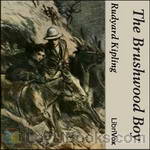 The Brushwood Boy
The Brushwood Boy
The experiences in public school, Sandhurst and military life in India of Major George Cottar together with his adventures in the dream world he discovers and frequents. | |
By: S. Weir Mitchell (1829-1914) | |
|---|---|
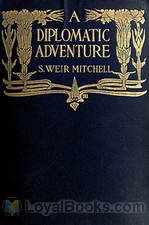 A Diplomatic Adventure
A Diplomatic Adventure
| |
By: Samuel Johnson (1709-1784) | |
|---|---|
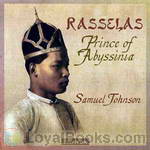 Rasselas, Prince of Abyssinia
Rasselas, Prince of Abyssinia
In this enchanting fable (subtitled The Choice of Life), Rasselas and his retinue burrow their way out of the totalitarian paradise of the Happy Valley in search of that triad of eighteenth-century aspiration – life, liberty and happiness.According to that quirky authority, James Boswell, Johnson penned his only work of prose fiction in a handful of days to cover the cost of his mother’s funeral. The stylistic elegance of the book and its wide-ranging philosophical concerns give no hint of haste or superficiality... | |
By: Sapper (1888-1937) | |
|---|---|
 Dinner Club
Dinner Club
Herman Cyril McNeile, better known as Sapper, was one of England’s most popular fiction writers during the period between World Wars I and II. He was a soldier, and his early writings mostly concerned war and the way war influenced the lives of his main characters. Because British officers were prohibited from publishing under their own names, he used the pseudonym Sapper. His best known works are ten thrillers featuring Bulldog Drummond. Sapper also wrote a great many other novels and short stories... | |
By: Sarah Orne Jewett (1849-1909) | |
|---|---|
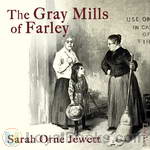 The Gray Mills of Farley
The Gray Mills of Farley
As contemporary today as it was over a century ago, this relatively unsentimental tale of labor relations still packs a punch. | |
By: Sholem Aleichem (1859-1916) | |
|---|---|
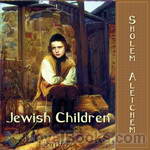 Jewish Children (Yudishe Kinder)
Jewish Children (Yudishe Kinder)
Although written from a child’s perspective, this is not a kids book but a series of funny, poignant, and sometimes disturbing stories about life in a late 19th-century Russian-Jewish village — the world of my grandparents. Sholem Rabinovich (1859-1916) was born in Pereiaslav, Ukraine and later immigrated to New York. His short stories about Tevye and his daughters were freely adapted into the musical FIDDLER ON THE ROOF. Rabinovich’s will contained the following injunction: “Let my name be recalled with laughter or not at all.” His translator, Hannah Berman, was Irish of Lithuanian descent.Some of these stories may be too intense for younger children. | |
By: Sinclair Lewis (1885-1951) | |
|---|---|
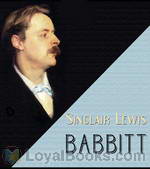 Babbitt
Babbitt
| |
By: Sir Arthur Conan Doyle (1859-1930) | |
|---|---|
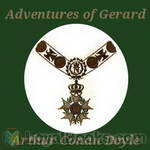 The Adventures of Gerard
The Adventures of Gerard
These lesser known stories were penned by Conan Doyle during the period between killing off Sherlock Holmes in 1893 and reluctantly resurrecting him some ten years later. The swashbuckling, eponymous hero, Etienne Gerard, is one of Napoleon's gallant French Hussars, who considers himself the finest of them all. Through these "Boys Own Adventures", Conan Doyle pokes gentle fun at both the French and the English. This is the second volume containing eight adventures. | |
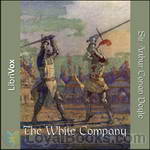 The White Company
The White Company
Set during the Hundred Years’ War with France, The White Company tells the story of a young Saxon man who is learning what it is to be a knight. Raised by Cistercian Monks and rejected by a violent elder brother, Alleyn Edricson takes service with one of the foremost knights in the country. When Alleyn falls in love with the knight’s daughter, he must prove himself to be a courageous and honourable knight before he can win her hand. Alleyn and his friends set forth with the other men-at-arms to join Prince Edward in Bordeaux, from where they will take part in the Prince’s campaign into Spain... | |
 The Great Shadow
The Great Shadow
Set in an English-Scottish border village during the waning days of the Napoleonic era, this adventure story introduces us to Jock Calder, whose quiet way of life is shattered when a mysterious stranger steps ashore near his home. The stranger changes forever the lives of Jock, his cousin Edie, and his best friend Jim, sending the young men into the jaws of the final battle to defeat The Great Shadow that threatens to devour the whole of Europe. Don't look for Sherlock Holmes in this well-written tale, but do expect a wonderful glimpse of life at the end of the Napoleonic era, including an exciting rendition of The Battle of Waterloo. (Introduction by Christine Dufour) | |
 The Mystery of Cloomber
The Mystery of Cloomber
This novel is written by the author of, among other novels, the Stories of Sherlock Holmes. It is narrated by John Fothergill West, who tries to discover why the tenant of Cloomber Hall, General Heatherstone, is nervous to the point of being paranoid. Why are his fears becoming stronger every year at the fifth of October? And why doesn't he let his children leave home? This is a great mystery novel with a sharp twist at the end. | |
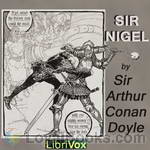 Sir Nigel
Sir Nigel
By 1348 the House of Loring has fallen on hard times. Together, the Black Death and the greedy monks of Waverley have bled away all of the Loring wealth. Even the manor house will have to go to pay their debts.Then a chance encounter with the King of England provides Nigel, the last of the Lorings, with the chance to seek his fortune in the constant wars with France. But more importantly for Nigel it also means that he may be able to do the "three small deeds" that will show he is worthy to ask for the hand of the Lady Mary in marriage.Filled with chivalry, humour, and high romance, Sir Nigel is simply a rattling good yarn. | |
 Uncle Bernac: A Memory of the Empire
Uncle Bernac: A Memory of the Empire
Looking for a replacement to Sherlock Holmes after the author had killed him off in 1894, Doyle wrote this murder mystery in the dying years of the 19th century. Set in Napoleon’s era, it involves a Frenchman returning to his native land to join the Emperor’s ranks. | |
 The Last of the Legions and Other Tales of Long Ago
The Last of the Legions and Other Tales of Long Ago
| |
 Desert Drama: Being the Tragedy Of The Korosko
Desert Drama: Being the Tragedy Of The Korosko
Also published under the title The Tragedy of the Korosko (1898). A group of European tourists are enjoying their trip to Egypt in the year 1895. They are sailing up the River Nile in a "a turtle-bottomed, round-bowed stern-wheeler", the Korosko. They intend to travel to Abousir at the southern frontier of Egypt, after which the Dervish country starts. They are attacked and abducted by a marauding band of Dervish warriors. The novel contains a strong defence of British Imperialism and in particular the Imperial project in North Africa. It also reveals the very great suspicion of Islam felt by many Europeans at the time. | |
 The Last Galley Impressions and Tales
The Last Galley Impressions and Tales
| |
By: Sir Stephen King-Hall | |
|---|---|
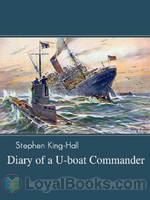 Diary of a U-boat Commander
Diary of a U-boat Commander
The infamous U boats deployed by Germany in the two World Wars have spawned several works of fiction and non-fiction. These deadly vessels were not just efficient and lethal killing machines, but they were also used very effectively in economic blockades. They were positioned primarily to obstruct the conveyance of fuel, food and other essential supplies which the enemy needed to sustain the war effort. In the Diary of a U Boat Commander, the author, Stephen King-Hall draws upon his vast personal experiences as a naval officer in World War I... | |
By: Sir Walter Scott (1771-1832) | |
|---|---|
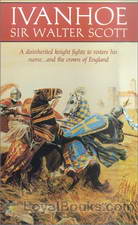 Ivanhoe
Ivanhoe
Medieval England in the 12th century. The evil Prince John rules England in place of his brother, the noble Richard the Lionheart, who is being held in an Austrian prison by Duke Leopold of Austria, while returning from one of his Crusades. Under the avaricious and Machiavellian John, the Norman aristocrats are in constant conflict with the native Saxon people. Ivanhoe by Sir Walter Scott is set in these turbulent times. The eponymous hero, Wilfred of Ivanhoe, the son of a Saxon nobleman has been disinherited by his father for following King Richard into war... | |
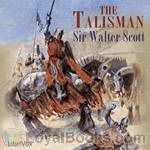 The Talisman
The Talisman
The Talisman is a gripping tale set near the end of the Third Crusade. King Richard the Lionheart is grievously ill, and all around him the leaders from allied countries plot and scheme to gain personal power, putting the future of the crusade in jeopardy. Sir Kenneth of Scotland finds himself caught up in events, and finds both his honour and his life are now on the line. Can a cure be found for the King? Can Kenneth redeem his honour? – Written by Rowen. | |
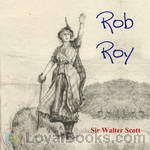 Rob Roy
Rob Roy
Rob Roy is a historical novel by Walter Scott. It is narrated by Frank Osbaldistone, the son of an English merchant who travels first to the North of England, and subsequently to the Scottish Highlands to collect a debt stolen from his father. On the way he encounters the larger-than-life title character of Rob Roy MacGregor. Though Rob Roy is not the lead character (in fact the narrative does not move to Scotland until half way through the book) his personality and actions are key to the development of the novel. | |
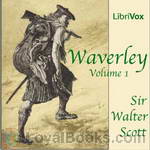 Waverley
Waverley
Waverley is set during the Jacobite Rebellion of 1745, which sought to restore the Stuart dynasty in the person of Charles Edward Stuart (or 'Bonnie Prince Charlie'). It relates the story of a young dreamer and English soldier, Edward Waverley, who was sent to Scotland in 1745. He journeys North from his aristocratic family home, Waverley-Honour, in the south of England first to the Scottish Lowlands and the home of family friend Baron Bradwardine, then into the Highlands and the heart of the 1745 Jacobite uprising and aftermath. | |
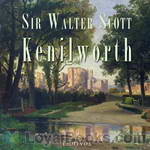 Kenilworth
Kenilworth
An Elizabethan era historical novel by Scotland’s master of fiction, Sir Walter Scott. With a cast of historical and created characters, including the Queen herself, Scott presents the sad history and tragic consequences of the secretive marriage of young Amy Robsart and the Earl of Leicester. (Summary by SK) | |
 Anne of Geierstein, Volume 1
Anne of Geierstein, Volume 1
Anne of Geierstein, or The Maiden of the Mist is a novel by Sir Walter Scott. It is set in Central Europe, mainly in Switzerland, shortly after the Yorkist victory at the Battle of Tewkesbury . It covers the period of Swiss involvement in the Burgundian Wars. | |
 Anne of Geierstein, Volume 2
Anne of Geierstein, Volume 2
Anne of Geierstein, or The Maiden of the Mist is an adventure and romance novel by Sir Walter Scott. It is set in Central Europe, mainly in Switzerland, shortly after the Yorkist victory at the Battle of Tewkesbury . It covers the period of Swiss involvement in the Burgundian Wars. | |
 Pirate
Pirate
The Pirate is set in the island of Shetland in the late 1600s, and is a historical novel based on the life of John Gow, Captain Cleveland in the novel. - Summary by Deon Gines | |
By: Stanley John Weyman (1855-1928) | |
|---|---|
 A Gentleman of France
A Gentleman of France
| |
 In Kings' Byways
In Kings' Byways
| |
 The Long Night
The Long Night
| |
By: Stephen Crane (1871-1900) | |
|---|---|
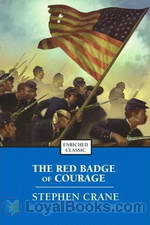 The Red Badge of Courage
The Red Badge of Courage
The Red Badge of Courage is a fiction that tells the story of a soldier named Henry Fleming during the American Civil War. The novel gained widespread praise from critics and was also a commercial success shortly after its release and made Stephen Crane an instant celebrity at the young age of 24. In the novel, Henry was one of the enlisted soldiers in the 304th New York Regiment. He flees from battle in one of the skirmishes they had against the Confederates and to hide his cowardice, he attempted to inflict a wound to himself which is referred to as the “red badge of courage... | |
By: Stewart Edward White (1873-1946) | |
|---|---|
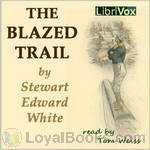 The Blazed Trail
The Blazed Trail
Stewart Edward White wrote fiction and non-fiction about adventure and travel, with an emphasis on natural history and outdoor living. White's books were popular at a time when America was losing its vanishing wilderness and many are based on his experiences in mining and lumber camps. The Blazed Trail is the story of early lumbermen in the northern woods of Michigan. The novel portrays the challenges faced by the workers focusing on one, Harry Thorpe, as he endeavors to be successful though completely unskilled when he enters the woods... | |
By: Susan Edmonstoune Ferrier | |
|---|---|
 Marriage, Volume 1
Marriage, Volume 1
“Love!–A word by superstition thought a God; by use turned to an humour; by self-will made a flattering madness.” – Alexander and Campaspe. Lady Juliana, the indulged and coddled seventeen (”And a half, papa”) year old daughter of the Earl of Cortland, is betrothed by her father to a wealthy old Duke who can give her every luxury. She instead runs away and marries her very handsome but penniless lover. Very soon, they are forced to travel to Scotland to live with his quirky family in a rundown “castle” in the barren wilderness. Can this marriage survive?(Summary by P.Cunningham) | |
By: Théophile Gautier (1811-1872) | |
|---|---|
 Romance of a Mummy and Egypt
Romance of a Mummy and Egypt
MANUAL OF SURGERY, OXFORD MEDICAL PUBLICATIONSBY ALEXIS THOMSON, F.R.C.S.Ed.PREFACE TO SIXTH EDITION Much has happened since this Manual was last revised, and many surgical lessons have been learned in the hard school of war. Some may yet have to be unlearned, and others have but little bearing on the problems presented to the civilian surgeon. Save in its broadest principles, the surgery of warfare is a thing apart from the general surgery of civil life, and the exhaustive literature now available on every aspect of it makes it unnecessary that it should receive detailed consideration in a manual for students... | |
By: Thomas A. Janvier (1849-1913) | |
|---|---|
 The Aztec Treasure-House
The Aztec Treasure-House
| |
By: Thomas Dixon (1864-1946) | |
|---|---|
 The Victim A romance of the Real Jefferson Davis
The Victim A romance of the Real Jefferson Davis
| |
By: Thomas Dixon, Jr. (1864-1946) | |
|---|---|
 Clansman, An Historical Romance of the Ku Klux Klan
Clansman, An Historical Romance of the Ku Klux Klan
The second book in a trilogy of the Reconstruction era - The Leopard's Spots (1902), The Clansman (1905), and The Traitor (1907), this novel was the basis for the 1915 silent movie classic, "The Birth Of A Nation". Within a fictional story, it records Dixon's understanding of the origins of the first Ku Klux Klan (his uncle was a Grand Titan during Dixon's childhood), recounting why white southerners' began staging vigilante responses to the savage personal insults, political injustices and social cruelties heaped upon them during Reconstruction... | |
By: Thomas Hardy (1840-1928) | |
|---|---|
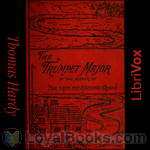 The Trumpet-Major
The Trumpet-Major
Our heroine, Anne Garland, lives quietly in a rural community deep in the English countryside. However, the arrival of several regiments preparing for an expected invasion brings colour and chaos to the county. A graceful and charming young woman, Anne is pursued by three suitors: John Loveday, the trumpet-major in a British regiment, honest and loyal; his brother Robert, a merchant seaman and womaniser, and Festus Derriman, the cowardly son of the local squire. Set at the time of the Napoleonic wars, this is the author’s only historical novel, and unusually for Hardy’s stories, most of the characters live happily ever after. | |
 Group of Noble Dames
Group of Noble Dames
The pedigrees of our county families, arranged in diagrams on the pages of county histories, mostly appear at first sight to be as barren of any touch of nature as a table of logarithms. But given a clue—the faintest tradition of what went on behind the scenes, and this dryness as of dust may be transformed into a palpitating drama. Out of such pedigrees and supplementary material most of the following stories have arisen and taken shape. | |
By: Thomas Love Peacock (1785-1866) | |
|---|---|
 Maid Marian
Maid Marian
| |
By: Thomas Wallace Knox (1835-1896) | |
|---|---|
 Captain John Crane, 1800 - 1815
Captain John Crane, 1800 - 1815
John and David grew up best of friends, outgoing and full of adventure. Living but miles from the sea west of Boston, right on the cusp of manhood at the end of America’s Revolutionary war, the ocean’s siren song beckoned to both. At the peak of adolescence, they struck out on foot in pursuit of their shared dream. Two days to Boston and only one day there found them aboard ship for a whirlwind of adventure beyond their wildest dreams. The next fifteen years shaped a future for the fledgling mariners that seems spun as a flaxen yarn --- were it not so historically accurate. - Summary by Tom Hirsch | |
By: Tom Bevan (1868-) | |
|---|---|
 Sea-Dogs All! A Tale of Forest and Sea
Sea-Dogs All! A Tale of Forest and Sea
| |
By: Torquato Tasso (1544-1595) | |
|---|---|
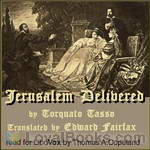 Jerusalem Delivered
Jerusalem Delivered
The First Crusade provides the backdrop for a rich tapestry of political machinations, military conflicts, martial rivalries, and love stories, some of which are complicated by differences in religion. The supernatural plays a major role in the action. Partly on this account, and partly because of the multilayered, intertwined plots, the poem met with considerable contemporary criticism, so Tasso revised it radically and published the revision under a new name, La Gerusalemme Conquistata, or "Jerusalem Conquered," which has remained virtually unread, a warning to authors who pay attention to the critics... | |
By: Trollope, Anthony (1815-1882) | |
|---|---|
 Belton Estate, The
Belton Estate, The
Clara Amedroz is the virtuous, intelligent, and quick-witted heroine of this novel. Like all women of her time, she has few options other than to marry. She is lucky enough to have two eligible suitors, and chooses the more urbane and worldly of the two. Alas, however, she realizes fairly quickly that Captain Aylmer is not a nice person. Throughout much of the novel we find her trying hard not to recognize that Will Belton - the suitor she rejected, and who still loves and wants to marry her - is... | |
By: Upton Sinclair (1878-1968) | |
|---|---|
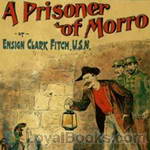 A Prisoner of Morro
A Prisoner of Morro
Upton Sinclair, born in 1878 was a Pulitzer Prize-winning American author. He wrote over 90 books in many genres. Best known for his muckraking novel, The Jungle, Sinclair also wrote adventure fiction. Many of these works were written under the pseudonym, Ensign Clark Fitch, U.S.N. A Prisoner of Morrow, published in 1898 when Sinclair was but 20 years old, is one of these efforts. The period for this work is the ten-week Spanish–American War which occurred in 1898. Revolts against Spanish rule had been prevalent for decades in Cuba and were closely watched by Americans... | |
By: Vicente Blasco Ibáñez (1867-1928) | |
|---|---|
 Four Horsemen of the Apocalypse
Four Horsemen of the Apocalypse
The Four Horsemen of the Apocalypse, by Vicente Blasco Ibañez and translated into English by Charlotte Brewster Jordan, depicts two branches of a family with its roots in the pampas of Argentina. The wealthy Argentinian, Julio Madariaga, comes from Spain and raises himself from poverty, becoming a self-made, wealthy cattleman. He is a man of extremes; an honest man with a rascally knack for taking advantage of others; a self-made man with overweening pride, prejudices, and a sharp, flinty temper that can spark into violence, he is at the same time given to great generosity toward those who are under him... | |
By: Victor Hugo (1802-1885) | |
|---|---|
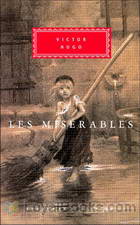 Les Misérables
Les Misérables
Victor Hugo's Les Misérables is a novel which tells the story of ex-convict Jean Valjean, his struggles and eventual redemption. It's hailed by many critics as not just Victor Hugo's finest work but also one of the best French novels of all time. Like most epic novels written in the 19th century, the storyline of Les Misérables spans through several decades beginning in the early 1800s and culminating in the 1832 June Rebellion in Paris. The events related to the lives of the central characters in the novel are also tied to the great historical events of the time from the French Revolution to the June Rebellion... | |
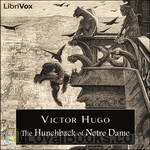 The Hunchback of Notre Dame
The Hunchback of Notre Dame
One of the great literary tragedies of all time, The Hunchback of Notre Dame features some of the most well-known characters in all of fiction - Quasimodo, the hideously deformed bellringer of Notre-Dame de Paris, his master the evil priest Claude Frollo, and Esmeralda, the beautiful gypsy condemned for a crime she did not commit. | |
 Ninety-Three
Ninety-Three
1793. The new revolutionary government of France is laboring mightily to end injustice and bring in an ideal new age of liberty, equality, and brotherhood, beginning by killing those obnoxious persons who don't appreciate their ideals. In Vendée a force of peasants, strongly supported by imperial England, is laboring mightily to overthrow the revolutionary government and restore Christianity, family, honor and decency, beginning by killing those obnoxious persons who fail to appreciate those noble phenomena... | |
By: Violet Jacob (1863-1946) | |
|---|---|
 Flemington
Flemington
This adventure historical fiction novel is set in Angus, Scotland during the Jacobite rebellion of 1745. It has all the elements of a good war novel: spies, betrayals, politics, and even a love story . This is a smart novel with wise insights into human nature, the different choices people make during a conflict, and the coping mechanisms of those who were left behind. This novel will make you laugh, cry, and fall in love with the landscape of Scotland. - Summary by Stav Nisser. | |
By: W. D. (William Douw) Lighthall (1857-1954) | |
|---|---|
 The False Chevalier or, The Lifeguard of Marie Antoinette
The False Chevalier or, The Lifeguard of Marie Antoinette
| |
By: Walter Pater (1839-1896) | |
|---|---|
 Marius the Epicurean
Marius the Epicurean
Marius the Epicurean is a philosophical novel written by Walter Pater, published in 1885. In it Pater displays, with fullness and elaboration, his ideal of the aesthetic life, his cult of beauty as opposed to bare asceticism, and his theory of the stimulating effect of the pursuit of beauty as an ideal of its own. The principles of what would be known as the Aesthetic movement were partly traceable to this book; and its impact was particularly felt on one of the movement’s leading proponents, Oscar Wilde, a former student of Pater at Oxford. | |